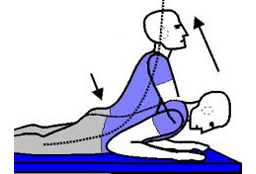Physiotherapy in Cambridge, Galt, and Preston for Cricket
Stretching is an essential part of cricket. A good stretching routine can help to minimize muscle imbalances, prevent injury and improve your performance during a match. The following stretching program is designed for cricket players who do not have any current injuries or individual stretching needs. If you have an injury, or a specific mechanical imbalance that may be holding back your performance, your physiotherapist at The Cambridge Physiotherapy can design a stretching program just for you.
When is the Best Time to Stretch?
When your muscles are warm and relaxed! If you take your performance seriously, stretch after you have done a general body warm up (usually light jogging) of about 5-10 minutes and again after your match. You should continue to stretch throughout the match especially if there are times when your muscles may be cooling down. Cricket is a dynamic sport so you'll need both dynamic and static stretching. Dynamic stretches form part of your pre-match or training warm-up. Static stretches can be included at the end of your cool down or at other times to improve your overall flexibility.
Rules for Dynamic Stretching:
- Warm up your muscles first, then stretch while your muscles are still warm.
- Move through your range of movement, keeping control of the movement with your muscles. Do not allow momentum to control the movement by "flinging" or "throwing" your body parts around.
- You may feel light resistance in your muscles, but you should never feel pain during a stretch.
- Start with slow, low intensity movements, and gradually progress to full-speed movements through range of motion. Complete these motions for several repetitions (10-15 times.) Follow the dynamic stretches with simulated cricket motions such as batting or bowling (not shown here) to specifically dynamically prepare the exact muscles that will be used when the match begins.
Rules for Static Stretching:
- Warm up the muscles first.
- Slowly take your muscles to the end of their range. You will feel slight resistance in the muscle, but you should never feel pain during a stretch.
- Hold the stretch in a static position. Do not bounce.
- Hold each stretch for at least 20 seconds; longer is better. Repeat each stretch 3-4 times
Dynamic Stretches:
Leg swings forwards and backwards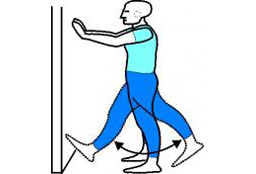 Leg swings sideways
Leg swings sideways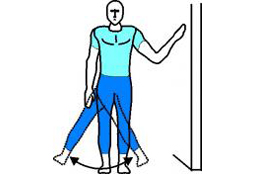 Lower leg curls
Lower leg curls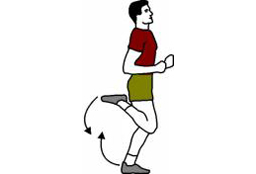 Lunges
Lunges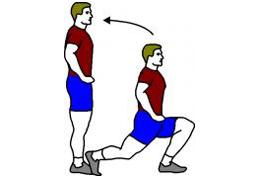 Arm circles
Arm circles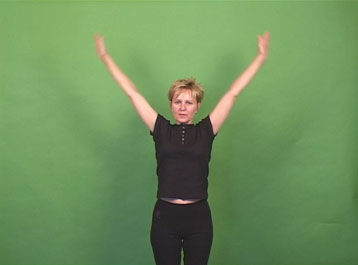
Neck and shoulder rotation with stick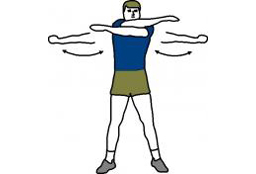 Hops
Hops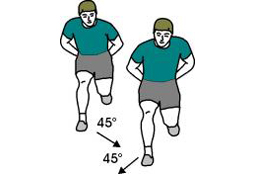 Static Stretches:
Static Stretches:
Hip Internal rotators Stretch
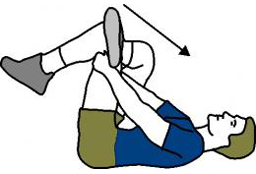
Hamstring stretch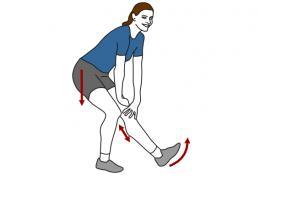 Quadriceps stretch
Quadriceps stretch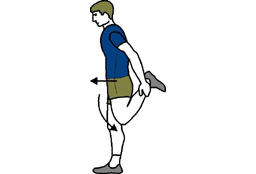
Calf stretch
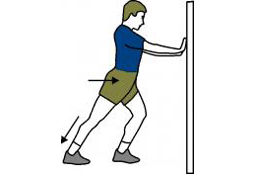 Triceps Stretch
Triceps Stretch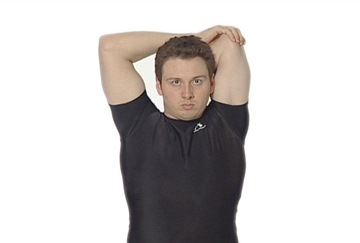 Posterior Shoulder Stretch
Posterior Shoulder Stretch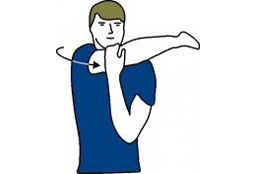 Forearm Stretch
Forearm Stretch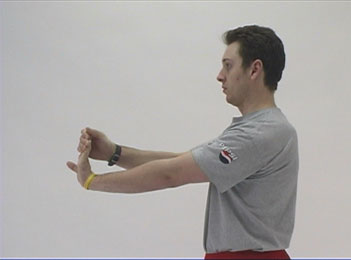
Back and Abdominals Stretch
